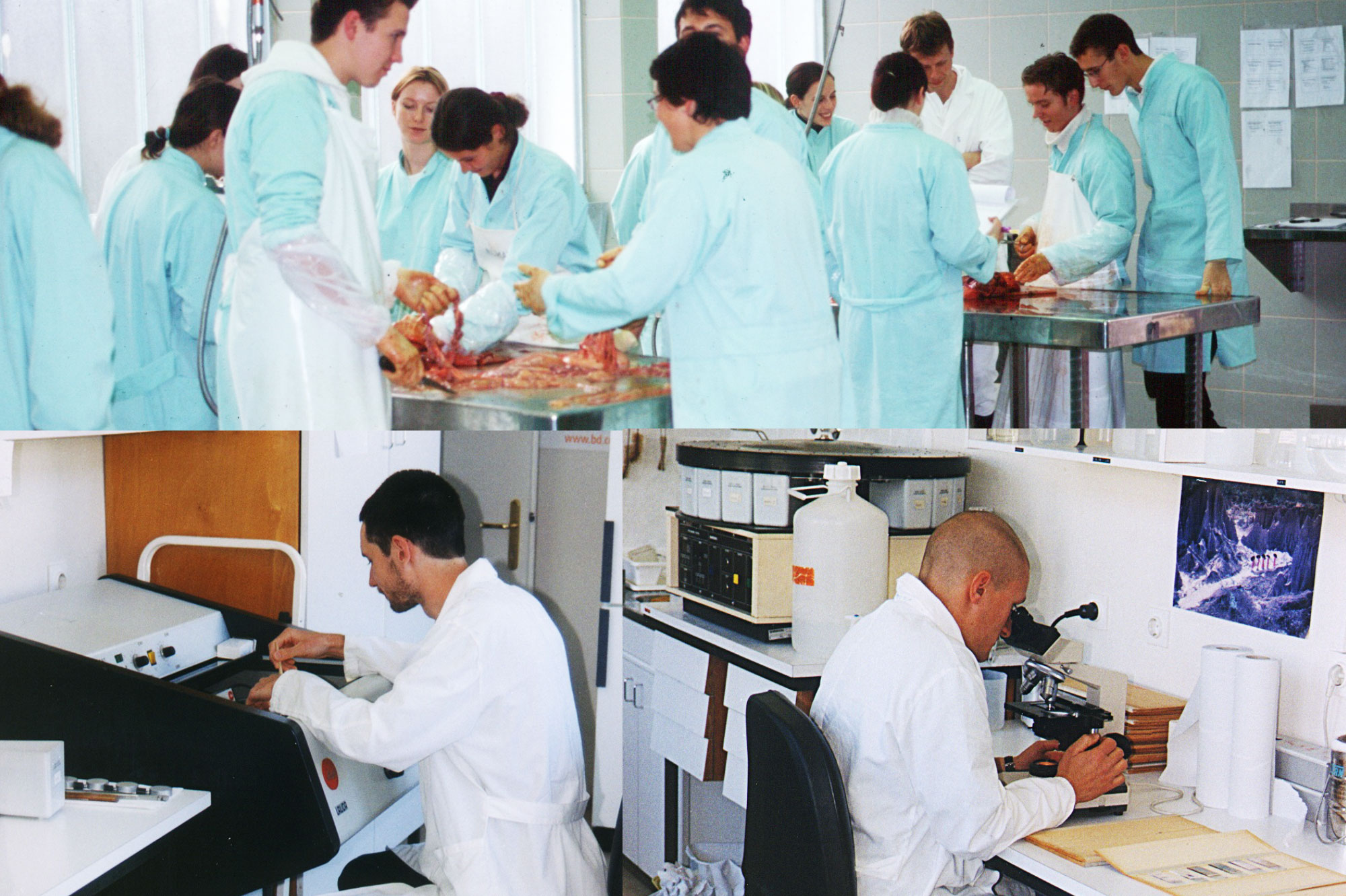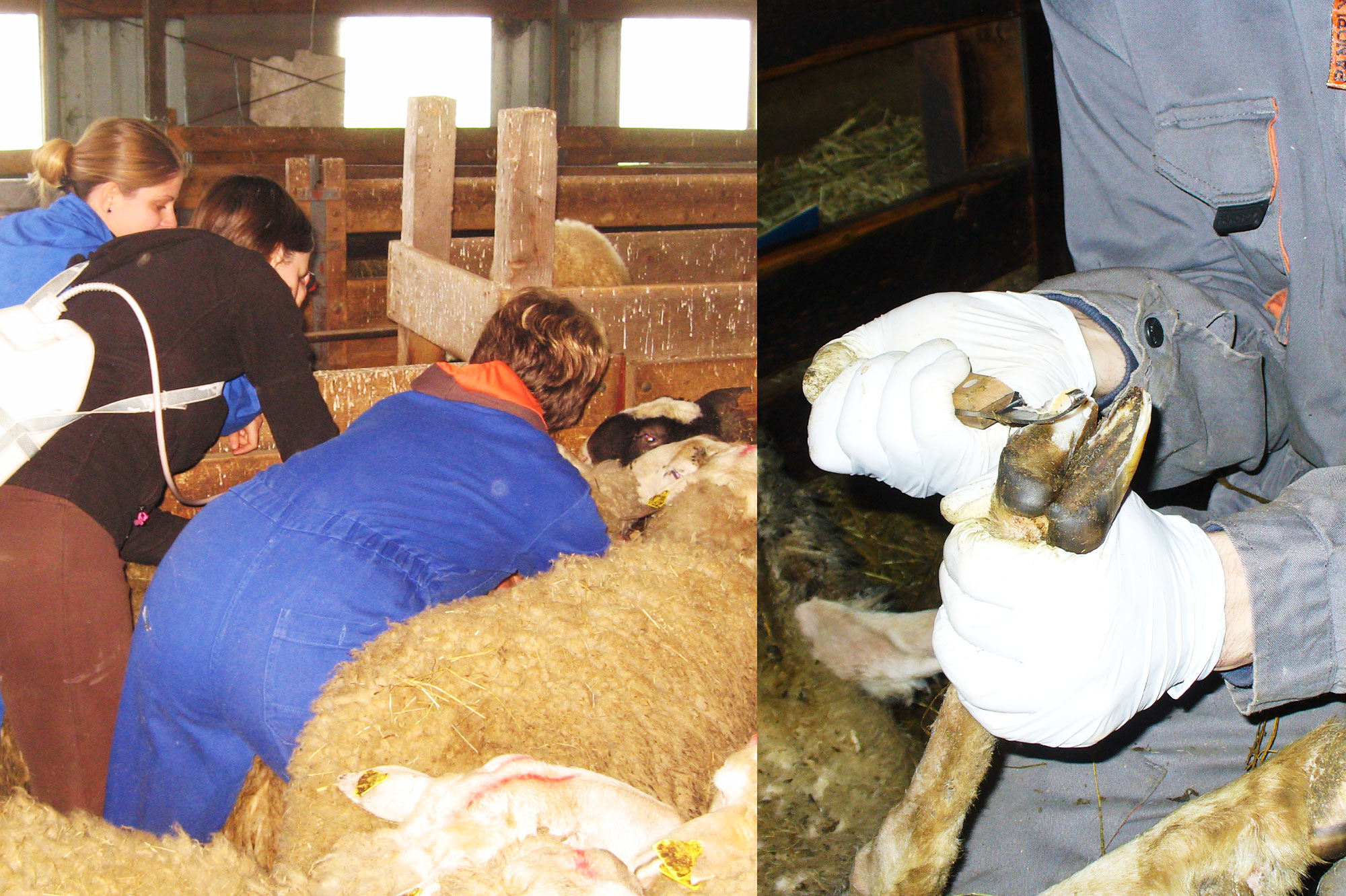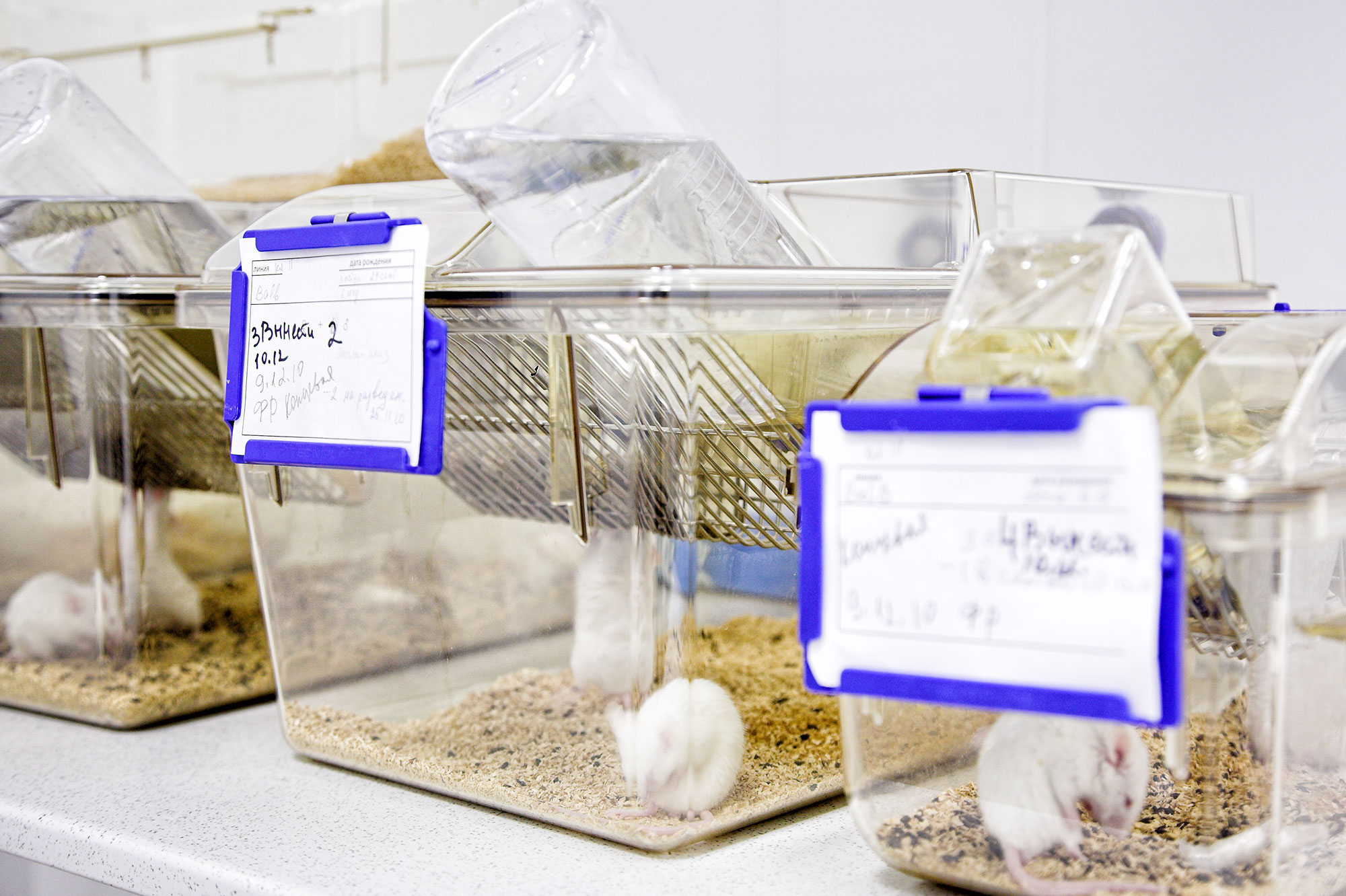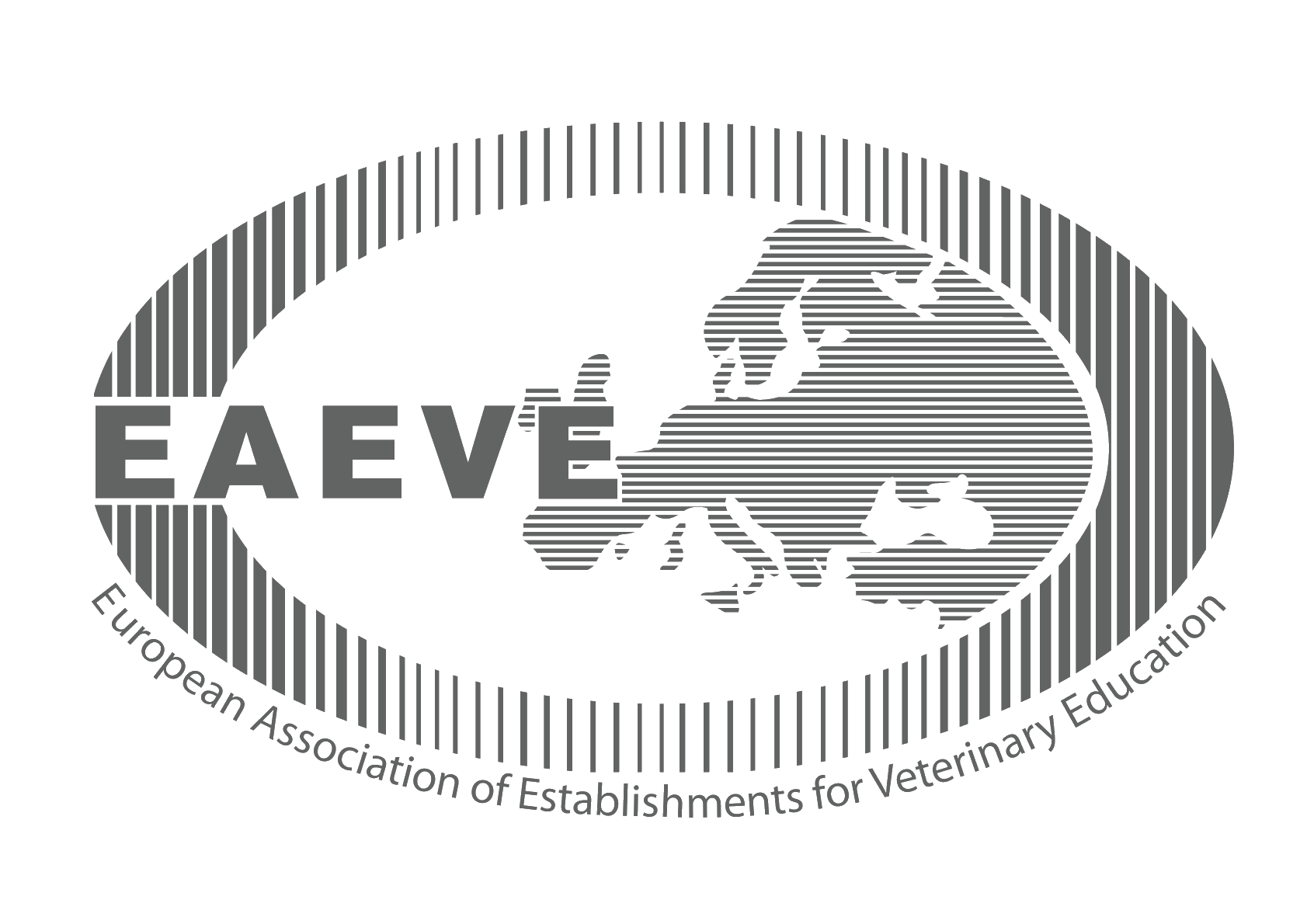
Year 4
Overview
Students learn about the reproduction and obstetrics of domestic animals. Clinical subjects begin in which diseases, treatments, and measures are learned in various animal species (equidae, ruminants, game, fish, and bees). Students work in a slaughterhouse and learn veterinary sanitation.
Mandatory Subjects
L – Lectures
S – Seminars
P – Practical Work
CP – Clinical Practice
OFS – Other forms of study
OW – Own Work
ΣCH – Contact Hours
ECTS – European Credit Transfer System
Fall Semester
Subject |
Supervisor |
L |
S |
P |
CP |
OFS |
OW |
ΣCH |
ECTS |
| Reproduction of Domestic Animals with Obstetrics | Marjan Kosec | 55 | 17 LAB* | 23 | 5 TPT | 80 | 180 | 6 | |
| Diseases and Health Care of Equines | Peter Kruljc | 40 | 30 | 5 TPT | 75 | 150 | 5 | ||
| Veterinary Economics |
Emil Erjavec Jaka Žgajnar |
20 | 10 | 60 | 90 | 3 | |||
| Diseases and Health Care of Ruminants | Jože Starič | 45 | 30 | 5 TPT | 70 | 150 | 5 | ||
| Veterinary sanitary control of animals for slaughter and meat | Andrej Kirbiš | 45 |
30 PSC |
45 | 120 | 4 | |||
| Diseases and Health Care of Fish and Bees | Metka Pislak Ocepek | 15 | 1 |
5 LAB 9 PSC |
5 TPT | 25 | 60 | 2 | |
| Animal welfare, ethics and legislation 2 | Alenka Dovč | 15 | 15 | 5 TPT | 55 | 90 | 3 | ||
| Elective course 5 | 3 |
LAB - Laboratory Practice (up to 18 students in a group); LAB* - Laboratory Practice (up to 9 students in a group); PSC - Practical Work in Special Circumstances (up to 7 students in a group); TPT - Terrain Practical Training (generally one group)
Spring Semester
Subject |
Supervisor |
L |
S |
P |
CP |
OFS |
OW |
ΣCH |
ECTS |
| Reproduction of Domestic Animals with Obstetrics | Marjan Kosec | 55 | 18 LAB* | 22 | 5 TPT | 80 | 180 | 6 | |
| Diseases and Health Care of Equines | Peter Kruljc | 30 | 4 | 26 | 5 TPT | 85 | 150 | 5 | |
| Veterinary sanitary control of animals for slaughter and meat | Andrej Kirbiš | 45 PSC | 45 | 90 | 3 | ||||
| Diseases and Health Care of Ruminants | Jože Starič | 40 | 20 LAB* | 30 | 5 TPT | 55 | 150 | 5 | |
| Animal Clinical Nutrition | Breda Jakovac Strajn | 40 |
30 LAB |
50 | 120 | 4 | |||
| Diseases and Health Care of Fish and Bees | Metka Pislak Ocepek | 20 | 1 |
5 LAB 9 PSC |
5 TPT | 50 | 90 | 3 | |
| Epizootiology | Ivan Toplak | 30 | 5 LAB | 55 | 90 | 3 | |||
| Elective course 5 |
LAB - Laboratory Practice (up to 18 students in a group); LAB* - Laboratory Practice (up to 9 students in a group); PSC - Practical Work in Special Circumstances (up to 7 students in a group); TPT - Terrain Practical Training (generally one group)
Supervisor: Marjan Kosec
Familiarisation with the role of sexual organs in all types of domestic animals; the reproductive behaviour of animals specific to each species of domestic animal and their deviations associated with various pathological events; fertilisation, embryo development, course of pregnancy, diagnosis of pregnancy, preparation for childbirth, course of childbirth and the postpartum period in individual species of domestic animals; all possible forms of reproduction, frequency of use of each form of reproduction in individual species of domestic animals; pathological events occurring in both male and female animals, pathology of birth and the postpartum period, events associated with newborns.
Supervisor: Peter Kruljc
Familiarisation, recognition, therapy and preventative basics and specific diseases of equidae, diagnostic procedures and care and treatment of sick horses.
Supervisor: Emil Erjavec, Jaka Žgajnar
Familiarisation with the role and tasks of veterinary activity in the economy and the principles of modern composition of veterinary service and veterinary practice. Familiarisation with the workings of economic laws in veterinary medicine, production theory, macro and microeconomic aspects of animal and human health. Learning methods of assessment of damage resulting from animal diseases and through modern epidemiological and economic methods of animal health planning and methods of economic justification of these programmes.
Supervisor: Jože Starič
Learning all the skills that ensure good ruminant healthcare; knowledge of diseases in large and small ruminants (infectious, metabolic, organic, poisoning) both in individual animals and at the level of herds or packs. Students learn the approach and handling of ruminants, the most common procedures (veterinary, surgical) and the use of certain special diagnostic procedures in ruminants. While working with patients, they are acquainted with clinical pathology (haematological, biochemical examinations of blood, urine, milk, punctates) and learn to interpret the results. The purpose is to prepare students for later independent clinical operative work (diagnostics, prevention, curative, epidemiology).
Supervisor: Andrej Kirbiš
Performing veterinary and sanitary control of slaughter animals and meat. On the basis of examination and, if necessary, also on the basis of the results of laboratory tests (bacteriological, virological, chemical), students must be able to assess the suitability of meat and organs for human consumption.
Supervisor: Metka Pislak Ocepek
In this subject, students become familiar with the anatomy and physiology of fish and the biology of bees, their conservation significance and role in modern agriculture. Through the basics of fish farming and beekeeping, students gain basic knowledge about the occurrence and spread of disease in intensive farming and outdoors. The emphasis is on the clinical and laboratory identification of infectious and non-infectious diseases of fish and bees, as well as the effective treatment and prevention of these diseases in intensive farming and in nature.
Supervisor: Martin Dobeic
Familiarisation with methods for assessing animal welfare using physiological methods, studying animal behaviour, the effects of disease and production on animal welfare, and ethical principles in the use of animals.
Supervisor: Breda Jakovac Strajn
The ability to prescribe clinical diets in economically important and household animals and the identification of inadequate management in intensive care. Such an approach is necessary due to multifaceted aetiology, usually latent course, and herd diagnostics of disorders. Understanding the economic aspect of disorders and the importance of working with other discipline working in related fields.
Supervisor: Ivan Toplak
Epizootiology is one of the basic foundations of preventive veterinary medicine, which provides veterinarians with knowledge of how to act in the event of a widespread contagious disease (epizootics) and in the case of other complex health problems. It also develops the knowledge needed to apply descriptive and analytical epidemiology.
Elective Subjects
The student can also enrol in any subject from the Year 1, 2 and 3 that he has not yet enrolled in - he must choose 1 subject.
L – Lectures
S – Seminars
P – Practical Work
CP – Clinical Practice
OFS – Other forms of study
OW – Own Work
ΣCH – Contact Hours
ECTS – European Credit Transfer System
Fall Semester
Subject |
Supervisor |
L |
S |
P |
CP |
OFS |
OW |
ΣCH |
ECTS |
|
Ecotoxicology in Veterinary Medicine |
Tomaž Snoj | 15 | 15 |
10 LAB |
5 TPT | 45 | 90 | 3 | |
| Surgery Practical Course | Vladimira Erjavec | 33 LAB* | 12 IP | 45 | 90 | 3 | |||
| Use of experimental/laboratory animals in research |
Jelka Zabavnik Piano |
30 | 3 | 7 LAB* | 80 | 120 | 4 |
LAB - Laboratory Practice (up to 18 students in a group); LAB* - Laboratory Practice (up to 9 students in a group); SP - Seminar Practical Work (up to 30 students in a group); TPT - Terrain Practical Training (generally one group); IP - Individual Practice (up to 3 students in a group)
Spring Semester
Subject |
Supervisor |
L |
S |
P |
CP |
OFS |
OW |
ΣCH |
ECTS |
| Pathomorphological Practice | Tanja Švara | 2 | 5 |
5 LAB* 18 PSC |
60 | 90 | 3 | ||
| Parasitologycal Practical Course | Petra Bandelj | 5 | 25 | 60 | 90 | 3 | |||
| Health Care of Small Ruminants |
Jože Starič Jožica Ježek |
8 | 10 | 12 | 60 | 90 | 3 |
LAB* - Laboratory Practice (up to 18 students in a group); PSC - Practical Work in Special Circumstances (up to 7 students in a group)
It is only possible to enrol in each elective subject once during study. With the prior consent of the Commission for Study and Student Affairs, students can achieve 5% of the credit points of the programme through external election of general elective courses and compulsory general courses in programmes at the University of Ljubljana or other universities in Slovenia.
Following completion of enrolment and based on a student’s written and substantiated explanation, the vice-dean for the pedagogical field can approve a change of the elective subject up to 20 October and inform the Commission for Study and Student Affairs. Subsequent changes of elective subjects are no longer possible.
With the prior consent of the Commission for Study and Student Affairs or the coordinator for international activities, students may transfer part of the study programme from any programme of study of veterinary medicine at a veterinary educational institution listed in the list of verified institutions EAEVE (European Association of Establishments for Veterinary Education).
Supervisor: Vladimira Erjavec
Familiarisation with the specialised veterinary surgery of domestic animals.
Supervisor: Tanja Švara
Students acquire additional practical knowledge, which builds on pathology in the field of diagnosing organic and infectious diseases in various animal species through the use of sophisticated laboratory diagnostic methods.
The elective subject Pathomorphological Practicum builds on the pathology course, which is taken in the third year of veterinary medicine studies. It contributes to the connection of the knowledge students have acquired in the study of all subjects of veterinary medicine and provides a comprehensive insight into the work of a veterinarian in determining the cause of death or the cause and nature of the disease process. It presents in more detail the pathomorphological and complementary diagnostics of infectious and other diseases of domestic and wild animals and enables the acquisition of basic practical knowledge of pathohistological and cytopathological techniques.
The 30-hour pathomorphological practicum is carried out:
- in the dissection room, in the pathohistological laboratory, and in the lecture hall of the Institute of Pathology, Game, Fish and Bees at the Faculty of Veterinary Medicine, Gerbičeva 60, Ljubljana
- in the dissection room of the NVI in the KOTO in Zalog.
Work in the dissection room
Dead animals are dissected in the dissection room. Students learn the process from accepting samples to compiling reports. Having already mastered the technique of dissection and knowing how to write a dissection record, students’ main task is to make the correct diagnoses for all the changes found during dissection work and to decide on the final diagnosis. Students compare their findings with the anamnestic data from the cover letter and, based on their knowledge of clinical subjects, decide on possible differential diagnoses and additional examinations to confirm the diagnosis or rule out a differential diagnosis. Additional investigations are chosen based on students’ own judgement founded on the findings of a dissection. The results of additional examinations are then included in the dissection record and are correctly evaluated.
Laboratory work
Students are familiarised with the equipment and methods used in pathohistological diagnostics (tissue fixation, production of frozen and paraffin tissue slices, preparation of dyes and the most common staining procedures, coverage of permanent histological preparations).
From the samples taken during dissections, students themselves make cytological preparations. Using a cryostat, students cut tissue slices and stain them using various staining methods (haematoxylin and eosin, Sudan, toluidine, PAS, Giemsa, Ziehl-Neelsen).
Students then examine the prepared cytological and pathohistological preparations using a microscope and make pathocytological and pathohistological diagnoses. The diagnoses are then included in the dissection record and are correctly evaluated.
Student responsibilities
Independently performing dissections, collecting material for additional examinations, technical production of pathohistological preparations, assessment of pathohistological changes, evaluation of results of additional examinations, completed dissection record, oral presentation of the work performed and defence of a selected case. Students perform the dissection and case defence in a group consisting of an autopsy examiner, an assistant and a record keeper. Students have at their disposal all the technical aids available in the diagnostic lecture room to present and defend their selected case. The assessment consists of an assessment of the presentation of the case and an assessment of the defence of the dissection record.

Supervisor: Tomaž Snoj
In the subject Ecotoxicology in Veterinary Medicine students learn about the interdisciplinarity of the field and are familiarised with the basic topics covered by the course.
- the impact of environmental pollutants on animals’ bodies
- the impact on the environment of medicinal products that animals excrete after treatment
In this regard, students are familiarised with a number of examples from ecotoxicological issues, and also learn about the role of veterinarians in protecting the environment. Based on examples, students learn about the mechanisms of the effects of various pollutants (poisons) in the environment on the body, and about the clinical signs of poisoning, diagnostic procedures and methods of treatment. New information combined with already acquired knowledge will enable you to think in many layers and in-depth and, most importantly, to generate new ideas about approaches and technologies in agriculture and industry that enable the preservation of a healthy environment.
Students are also familiarised with ecotoxicological testing of veterinary medicinal products, which must be carried out in the process of obtaining a licence to market such products.
Through seminars, students interactively engage in discussions and try to gain as much information, knowledge and new ideas as possible.
By understanding the interdependence of environmental, animal and human health, this subject enables an understanding of the concept of ‘one health’.
Supervisor: Petra Bandelj
Students acquire theoretical and practical knowledge in the field of veterinary parasitology with an emphasis on the patterns most commonly encountered by veterinarians in everyday clinical practice. Basic knowledge is acquired for more competent work in clinical practice and a starting point for further acquisition of knowledge in this field.
Supervisor: Jože Starič, Jožica Ježek
Familiarisation with the conditions of small ruminant breeding, major infectious and parasitic diseases of small ruminants, metabolic and other current diseases, more common diseases of lambs and kids and their treatment. Students are familiarised with the implementation of breeding inspections, the taking of appropriate samples, the selection of tests, and the interpretation of results.
Subject description
The content of the course is divided into sections:
- Conditions of breeding small ruminants (accommodation, food, handling)
- Clinical examinations of small ruminants (individual, packs)
- Infectious diseases of small ruminants
- Parasitic diseases
- Metabolic and other diseases
- Neonatal diseases
- Health care in herds of small ruminants
- Taking appropriate samples for the purpose of diagnosing diseases, selecting tests and interpreting the results
Goals
Students gain knowledge about diseases of small ruminants, their diagnosis, treatment and prevention.
As part of clinical exercises, students gain practical experience in breeding inspections, examination of sick animals, sampling and selection of tests, interpretation of test results, treatment, planning measures to reduce damage due to disease and eradication of certain infectious diseases in breeding, communication with owners, and counselling.
They will use the acquired knowledge in their later professional work.

Supervisor: Jelka Zabavnik Piano
In the subject ‘Use of animals in experimental research’, students will be familiarised with work with animals in procedures for scientific and educational purposes. They will learn the basics of anatomy and physiology of the most commonly used species of animals used in research (mice, rats, rabbits, hamsters ...), methods of breeding and reproduction and the basics of handling these animals including basic surgical techniques and anaesthesia and analgesia. The subject also covers the ethical and legislative aspects of working with animals for experimental research. Students will be acquainted with the procedures for obtaining a permit for the use of such animals and European and Slovenian legislation governing the use of animals in research. The content of the course has been designed to meet the legal requirements for a course for researchers using animals and is in the process of being approved by the Administration of the Republic of Slovenia for Food Safety, Veterinary and Plant Protection, in order that, following the expected approval, students who successfully complete this subject will have a course that is recognised for keepers of animals for research and those carrying out such research.
The course will take place partly in the form of lectures and partly in the form of active problem-based learning with discussions on various aspects of working with animals for experimental research, and practical exercises intended for qualification for working with such animals.

Glavna navigacija
- Informativni dan
- Why to become a veterinarian?
- Undergraduate Studies
- Postgraduate studies
- Pripravništvo
- Summer Schools
- Continuous education
- Professional Development
- International Activity
- Mednarodna dejavnost - Tuji študentje
- The Path to Creative Knowledge
- Tutoring
- Extracurricular Activities
- Career Centres
- Alumni
- Student organizations and societies
- Quality Assurance
The veterinarian on duty
Emergency veterinary assistance for dogs and cats and a telephone number of constant readiness.
Library
A wide selection of domestic and foreign professional literature in the field of veterinary medicine and other sciences.
Location
Gerbičeva 60
SI-1000 Ljubljana
Slovenija
Sample Reception
Samples are received at several locations throughout Slovenia. See where.
Main navigation
-
Education
- Informativni dan
- Why to become a veterinarian?
- Undergraduate Studies
- Postgraduate studies
- Pripravništvo
- Summer Schools
- Continuous education
- Professional Development
- International Activity
- Mednarodna dejavnost - Tuji študentje
- The Path to Creative Knowledge
- Tutoring
- Extracurricular Activities
- Career Centres
- Alumni
- Student organizations and societies
- Quality Assurance
- Clinics
- Diagnostics
- Dobrobit
- NVI
- Research
- About us
- Hub



